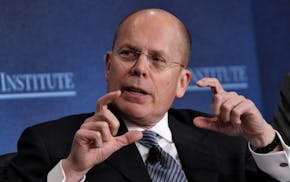Less than a month after Linda Findley took over as CEO of Sleep Number, she announced steep changes at the company, including cuts of $80 million to $100 million.
"Everything is on the table," she told analysts in a call late Thursday after the company released news of a widening loss and another 16% decline in sales during the first quarter.
Findley, the former CEO of food-kit delivery company Blue Apron Holdings, took the helm on April 7 and in three weeks has remade the management structure, cutting 21% of corporate managers.
She also reshaped the marketing and research and development teams at the Minneapolis-based manufacturer and seller of smart beds.
"We are laser-focused on delivering strong returns for shareholders. This entails taking a different approach to the business," she said.
So far, the company has trimmed 10% of overall corporate costs for the second quarter, including 21% or corporate management positions.
She said there is urgency to create "a stable business."
The changes come amid continued weakness in the mattress and home furnishing markets. For the first quarter ended March 31 the company lost $8.6 million, or 38 cents a share, compared with a loss of $7.5 million in the same period last year. Sales were $393 million.
The company's stock closed Thursday at $8.05, up about 3%.
Among the changes: Annie Bloomquist, who was an executive vice president and chief innovation officer, was told April 25 that her position was being eliminated. She will remain through the end of May to help with the transition.
Bloomquist was a 17-year veteran of Sleep Number's product design department. She was named chief innovation officer in 2020 and was behind some of Sleep Number's technology-driven designs that have helped elevate the company's products from bedroom furniture to a piece of its customers' wellness routine.
Findley told analysts innovation will continue to be a key differentiator but that innovation costs could be reduced.
"With the only bed backed with 33 billion hours of sleep data and counting, we are ahead of the curve, and that allows us to focus our resources on the here and now of customers' needs," Findley said.
Findley also identified marketing spend as a major area of potential cost savings and named Amber Minson as the company's new chief marketing officer. Findley described Minson as a data-driven marketer who will be in charge of creating a new marketing model for the company.
"We are encouraged by commentary around a return to Sleep Number's core value proposition — that Sleep Number beds give customers a great night's sleep — which was a simple message lost in recent years with the company's focus on sleep technology," wrote Peter Keith, a senior research analyst at Piper Sandler.
Findley told analysts on the company's earnings call that she will be making more changes in the weeks and months to come in her effort to stabilize the company.
Sleep Number, as with other big companies, also said tariffs are affecting the bottom line. Chief Financial Officer Francis Lee put the costs under President Donald Trump's current tariff plan at $30 million in 2025. The company believes $17 million can be offset through "thoughtful partnership with our suppliers and leveraging the flexibility of our supply chain," he said.

UnitedHealth sues the Guardian, alleging defamation in coverage of nursing home care

Prices for international flights drop as major airlines navigate choppy economic climate
Minnesota's med spa industry rises in popularity — and with little regulation

Hundreds line up at Best Buy to nab Nintendo Switch 2, in scene like '90s opening parties

